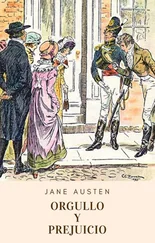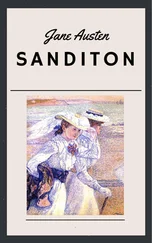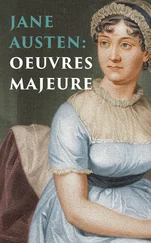Jane Austen - Mansfield Park
Здесь есть возможность читать онлайн «Jane Austen - Mansfield Park» — ознакомительный отрывок электронной книги совершенно бесплатно, а после прочтения отрывка купить полную версию. В некоторых случаях можно слушать аудио, скачать через торрент в формате fb2 и присутствует краткое содержание. Год выпуска: 1814, Жанр: Классическая проза, на английском языке. Описание произведения, (предисловие) а так же отзывы посетителей доступны на портале библиотеки ЛибКат.
- Название:Mansfield Park
- Автор:
- Жанр:
- Год:1814
- ISBN:нет данных
- Рейтинг книги:4 / 5. Голосов: 1
-
Избранное:Добавить в избранное
- Отзывы:
-
Ваша оценка:
- 80
- 1
- 2
- 3
- 4
- 5
Mansfield Park: краткое содержание, описание и аннотация
Предлагаем к чтению аннотацию, описание, краткое содержание или предисловие (зависит от того, что написал сам автор книги «Mansfield Park»). Если вы не нашли необходимую информацию о книге — напишите в комментариях, мы постараемся отыскать её.
Mansfield Park — читать онлайн ознакомительный отрывок
Ниже представлен текст книги, разбитый по страницам. Система сохранения места последней прочитанной страницы, позволяет с удобством читать онлайн бесплатно книгу «Mansfield Park», без необходимости каждый раз заново искать на чём Вы остановились. Поставьте закладку, и сможете в любой момент перейти на страницу, на которой закончили чтение.
Интервал:
Закладка:
"I never will, no, I certainly never will wish for a letter again," was Fanny's secret declaration as she finished this. "What do they bring but disappointment and sorrow? Not till after Easter! How shall I bear it? And my poor aunt talking of me every hour!"
Fanny checked the tendency of these thoughts as well as she could, but she was within half a minute of starting the idea that Sir Thomas was quite unkind, both to her aunt and to herself. As for the main subject of the letter, there was nothing in that to soothe irritation. She was almost vexed into displeasure and anger against Edmund. "There is no good in this delay," said she. "Why is not it settled? He is blinded, and nothing will open his eyes; nothing can, after having had truths before him so long in vain. He will marry her, and be poor and miserable. God grant that her influence do not make him cease to be respectable!" She looked over the letter again. "'So very fond of me!' 'tis nonsense all. She loves nobody but herself and her brother. Her friends leading her astray for years! She is quite as likely to have led them astray. They have all, perhaps, been corrupting one another; but if they are so much fonder of her than she is of them, she is the less likely to have been hurt, except by their flattery. 'The only woman in the world whom he could ever think of as a wife.' I firmly believe it. It is an attachment to govern his whole life. Accepted or refused, his heart is wedded to her for ever. 'The loss of Mary I must consider as comprehending the loss of Crawford and Fanny.' Edmund, you do not know me. The families would never be connected if you did not connect them! Oh! write, write. Finish it at once. Let there be an end of this suspense. Fix, commit, condemn yourself."
Such sensations, however, were too near akin to resentment to be long guiding Fanny's soliloquies. She was soon more softened and sorrowful. His warm regard, his kind expressions, his confidential treatment, touched her strongly. He was only too good to everybody. It was a letter, in short, which she would not but have had for the world, and which could never be valued enough. This was the end of it.
Everybody at all addicted to letter-writing, without having much to say, which will include a large proportion of the female world at least, must feel with Lady Bertram that she was out of luck in having such a capital piece of Mansfield news as the certainty of the Grants going to Bath, occur at a time when she could make no advantage of it, and will admit that it must have been very mortifying to her to see it fall to the share of her thankless son, and treated as concisely as possible at the end of a long letter, instead of having it to spread over the largest part of a page of her own. For though Lady Bertram rather shone in the epistolary line, having early in her marriage, from the want of other employment, and the circumstance of Sir Thomas's being in Parliament, got into the way of making and keeping correspondents, and formed for herself a very creditable, common-place, amplifying style, so that a very little matter was enough for her: she could not do entirely without any; she must have something to write about, even to her niece; and being so soon to lose all the benefit of Dr. Grant's gouty symptoms and Mrs. Grant's morning calls, it was very hard upon her to be deprived of one of the last epistolary uses she could put them to.
There was a rich amends, however, preparing for her. Lady Bertram's hour of good luck came. Within a few days from the receipt of Edmund's letter, Fanny had one from her aunt, beginning thus -
"My Dear Fanny, - I take up my pen to communicate some very alarming intelligence, which I make no doubt will give you much concern".
This was a great deal better than to have to take up the pen to acquaint her with all the particulars of the Grants' intended journey, for the present intelligence was of a nature to promise occupation for the pen for many days to come, being no less than the dangerous illness of her eldest son, of which they had received notice by express a few hours before.
Tom had gone from London with a party of young men to Newmarket, where a neglected fall and a good deal of drinking had brought on a fever; and when the party broke up, being unable to move, had been left by himself at the house of one of these young men to the comforts of sickness and solitude, and the attendance only of servants. Instead of being soon well enough to follow his friends, as he had then hoped, his disorder increased considerably, and it was not long before he thought so ill of himself as to be as ready as his physician to have a letter despatched to Mansfield.
"This distressing intelligence, as you may suppose," observed her ladyship, after giving the substance of it, "has agitated us exceedingly, and we cannot prevent ourselves from being greatly alarmed and apprehensive for the poor invalid, whose state Sir Thomas fears may be very critical; and Edmund kindly proposes attending his brother immediately, but I am happy to add that Sir Thomas will not leave me on this distressing occasion, as it would be too trying for me. We shall greatly miss Edmund in our small circle, but I trust and hope he will find the poor invalid in a less alarming state than might be apprehended, and that he will be able to bring him to Mansfield shortly, which Sir Thomas proposes should be done, and thinks best on every account, and I flatter myself the poor sufferer will soon be able to bear the removal without material inconvenience or injury. As I have little doubt of your feeling for us, my dear Fanny, under these distressing circumstances, I will write again very soon."
Fanny's feelings on the occasion were indeed considerably more warm and genuine than her aunt's style of writing. She felt truly for them all. Tom dangerously ill, Edmund gone to attend him, and the sadly small party remaining at Mansfield, were cares to shut out every other care, or almost every other. She could just find selfishness enough to wonder whether Edmund had written to Miss Crawford before this summons came, but no sentiment dwelt long with her that was not purely affectionate and disinterestedly anxious. Her aunt did not neglect her: she wrote again and again; they were receiving frequent accounts from Edmund, and these accounts were as regularly transmitted to Fanny, in the same diffuse style, and the same medley of trusts, hopes, and fears, all following and producing each other at haphazard. It was a sort of playing at being frightened. The sufferings which Lady Bertram did not see had little power over her fancy; and she wrote very comfortably about agitation, and anxiety, and poor invalids, till Tom was actually conveyed to Mansfield, and her own eyes had beheld his altered appearance. Then a letter which she had been previously preparing for Fanny was finished in a different style, in the language of real feeling and alarm; then she wrote as she might have spoken. "He is just come, my dear Fanny, and is taken upstairs; and I am so shocked to see him, that I do not know what to do. I am sure he has been very ill. Poor Tom! I am quite grieved for him, and very much frightened, and so is Sir Thomas; and how glad I should be if you were here to comfort me. But Sir Thomas hopes he will be better to-morrow, and says we must consider his journey."
The real solicitude now awakened in the maternal bosom was not soon over. Tom's extreme impatience to be removed to Mansfield, and experience those comforts of home and family which had been little thought of in uninterrupted health, had probably induced his being conveyed thither too early, as a return of fever came on, and for a week he was in a more alarming state than ever. They were all very seriously frightened. Lady Bertram wrote her daily terrors to her niece, who might now be said to live upon letters, and pass all her time between suffering from that of to-day and looking forward to to-morrow's. Without any particular affection for her eldest cousin, her tenderness of heart made her feel that she could not spare him, and the purity of her principles added yet a keener solicitude, when she considered how little useful, how little self-denying his life had (apparently) been.
Читать дальшеИнтервал:
Закладка:
Похожие книги на «Mansfield Park»
Представляем Вашему вниманию похожие книги на «Mansfield Park» списком для выбора. Мы отобрали схожую по названию и смыслу литературу в надежде предоставить читателям больше вариантов отыскать новые, интересные, ещё непрочитанные произведения.
Обсуждение, отзывы о книге «Mansfield Park» и просто собственные мнения читателей. Оставьте ваши комментарии, напишите, что Вы думаете о произведении, его смысле или главных героях. Укажите что конкретно понравилось, а что нет, и почему Вы так считаете.












